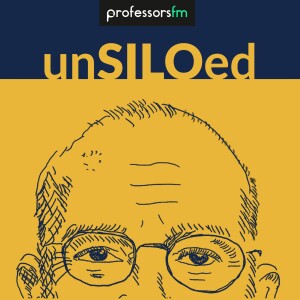
265. The Platform Delusion feat. Jonathan Knee
 2023-03-31
2023-03-31
Every business wants to become a platform business, believing that network effects and first mover advantages will lead to market power and competitive advantage. Indeed, some investors think that the advantages that come from being a platform are the only ones that matter in the digital economy. But not every great business is a platform, and not every platform is a great business.
Jonathan Knee is the Michael T. Fries Professor of Professional Practice of Media and Technology at Columbia Business School and the Co-Director of their Media and Technology Program. He is also the author of several books, including his latest, The Platform Delusion: Who Wins and Who Loses in the Age of Tech Titans, where he explores the business models of tech companies, large and small.
Jonathan and Greg discuss business strategy and how it looks different in the modern era. Jonathan also emphasizes the importance of vertical specialization in a world of big data, what really qualifies as a platform, and also what, surprisingly, does not. They discuss the features of a platform and how things like Amazon’s Marketplace and the travel site Booking.com made use of platforms to gain market share on their competitors and scale quickly. They also look at the changing career paths of today’s business school graduates.
*unSILOed Podcast is produced by University FM.*
Episode Quotes:What is fundamental to being smart about strategy?
02:49: The laws of economics and strategy, which are closely related, do not change just like the laws of gravity. But what does change, and what is fundamental to being smart about strategy, is industry structure. And industry structure drives strategy at the end of the day, and industry structure is extremely dynamic. And the key to being successful, in my view, is to overlay the timeless economic principles on top of the morphing industry structures.
Defining platform
16:44: What is the definition of a platform? It's essentially a business whose fundamental value proposition derives not from making something but from connecting, whether it's individuals, businesses, or otherwise.
Something important to keep in mind if you have a network effect business
23:33: If you've got a network effects business that has no significant fixed cost requirements and also has no real mechanism to have customer captivity, you're going to have a real shitty business.
Why the merchant model is better in a hot market
45:52: The reality is in a hot market, the merchant model is better because you bought a bunch of inventory cheap, and can sell it for a huge profit. And in a down market, you'd rather be an agency model. So you don't have a bunch of inventory on your balance sheet. So one isn't better than the other.
Show Links:Recommended Resources:- Harvard Business Review article Competing in the Age of AI
- General Data Protection Regulation (GDPR)
- Platform Competition in Two-Sided Markets by Jean-Charles Rochet and Jean Tirole
- Faculty Profile at Columbia Business School
- Faculty Profile at Yale Law School
- Professional Profile on Evercore
- Jonathan A. Knee on Twitter
- Jonathan A. Knee on Google Scholar
- Articles on The Atlantic
- The Platform Delusion: Who Wins and Who Loses in the Age of Tech Titans
- Class Clowns: How the Smartest Investors Lost Billions in Education
- The Curse of the Mogul: What's Wrong with the World's Leading Media Companies
- The Accidental Investment Banker: Inside the Decade that Transformed Wall Street
More Episodes
 2024-03-08
2024-03-08
Create your
podcast in
minutes
- Full-featured podcast site
- Unlimited storage and bandwidth
- Comprehensive podcast stats
- Distribute to Apple Podcasts, Spotify, and more
- Make money with your podcast
It is Free
- Privacy Policy
- Cookie Policy
- Terms of Use
- Consent Preferences
- Copyright © 2015-2024 Podbean.com





